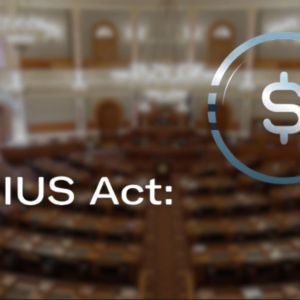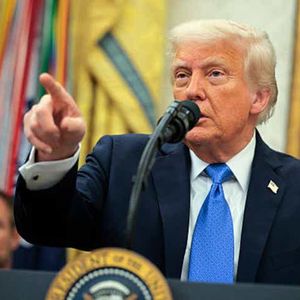The Senate voted 66–22 to advance the GENIUS Act, showing strong support from both Democrats and Republicans and signaling that the U.S. government is finally ready to take crypto regulation seriously. The Act still raises concerns about whether it goes too far or not far enough in protecting consumers and whether it will hurt innovation. Supporters say the bill will open doors for more businesses to safely enter the market and build better tools for payments and finance . Still, critics warn that the GENIUS Act may either be too soft on risky players or too harsh on small startups and innovators who can’t meet all the new requirements. Supporters say the bill keeps consumers safe Supporters of the GENIUS Act believe the bill helps prevent disasters like the 2022 collapse of Terra Luna, which caused billions in losses and sent shockwaves through the entire industry. The Act reduces the risk that coins will lose their value suddenly by forcing stablecoin providers to keep 100% of reserves in safe assets like cash or U.S. Treasury bills so that consumers can’t cash out. The law also ensures consumers handling more than $50 billion in stablecoins publish monthly reports about their reserves and go through annual financial audits to help buyers trust the coins they use or hold because the company stands by its promise. If a stablecoin company collapses, the GENIUS Act gives everyday users priority when getting their money back. Critics, including Senator Elizabeth Warren, argue that the law doesn’t do enough to prevent powerful people from using stablecoins for personal gain while still influencing public policy. For example, the bill doesn’t fully deal with Trump’s USD1 stablecoin, which was created by a crypto company linked to the president. The law, Senator Warren says, will enable anonymous buyers, foreign governments, and big corporations to use stablecoins to hide money, evade regulation, and perhaps secure special treatment like pardons or special arrangements from officials who have conflicts of interest. Warren and other critics fear that the system could fall apart once more if companies follow the rules on paper but engage in similarly reckless behavior in practice — only this time, the losses would likely be larger, especially if foreign players or major firms abuse the system without being identified in time. Supporters argue that the Act provides new startups and established banks with clear rules to follow. They say companies will build useful tools that attract responsible investors, encourage long-term planning, and introduce creative solutions. Supporters also believe that setting strict standards will allow companies to compete based on the quality of their services. Critics say strict rules hurt small startups On the other hand, critics worry that the GENIUS Act’s strict rules might only work for big firms and shut out smaller innovators because it requires firms to create separate subsidiaries to issue stablecoins. Opponents also fear that the bill’s long list of monthly reserve reports, annual audits, liquidity rules, and marketing limit requirements could make small teams or international developers who want to build for U.S. users feel locked out. There’s also concern that if only a few big companies control most of the stablecoin market , they could set the terms for everyone else and cause less diversity in products, fewer choices for consumers, and more market power in the hands of a few firms. We must find a fair balance between safety and growth The GENIUS Act is a historic step in bringing order to stablecoins because, for the first time, stablecoin issuers will have to answer to clear federal laws, something supporters say is long overdue. However, critics are not wrong when they say important protections are missing because the bill could do more to limit political influence, protect users from abuse, and make room for new voices and ideas in the market. Many fear the law could favor powerful players at the expense of small innovators and everyday users. Still, the GENIUS Act remains a step, but whether it moves the U.S. forward, backward, or sideways will depend on how it’s enforced, how it evolves, and who it truly serves in the long run. Your crypto news deserves attention - KEY Difference Wire puts you on 250+ top sites


















